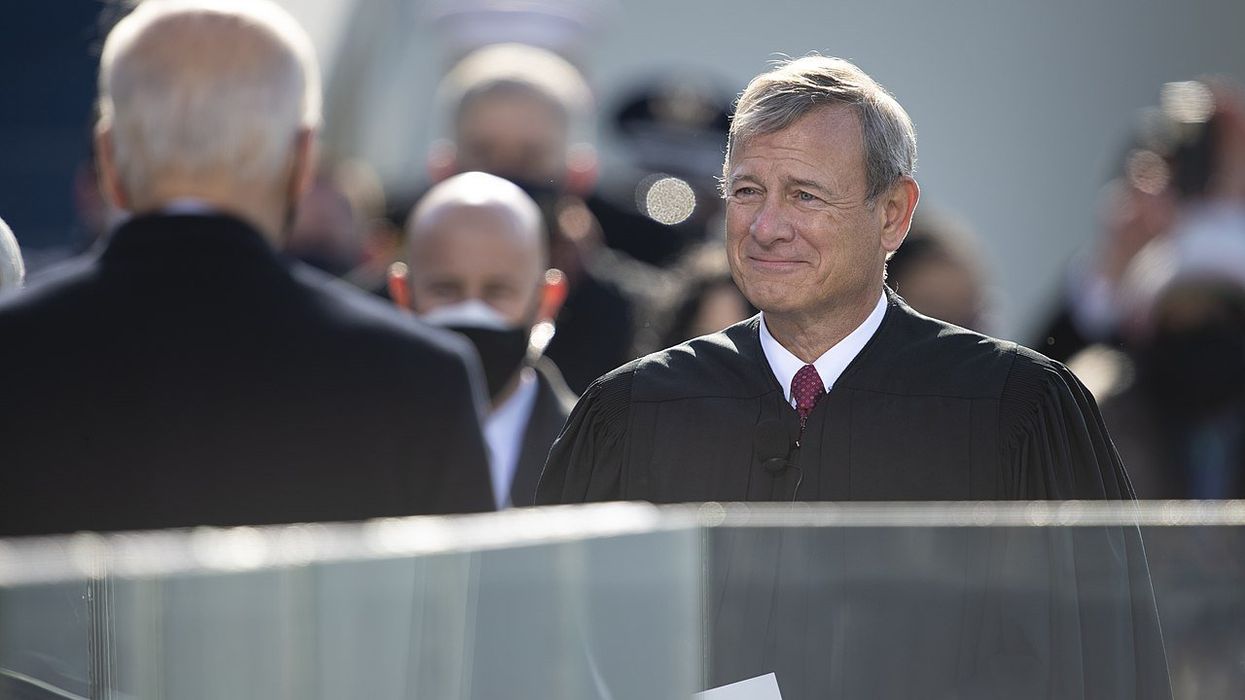'Not clear enough': Scholars warn SCOTUS ruling creates the very 'chaos' they 'were trying to avoid'

U.S. Supreme Court Justice John Roberts with President Joe Biden on January 20, 2020 (Creative Commons)
March 05, 2024 | 09:13AM ETBank
When the U.S. Supreme Court heard oral arguments in Trump v. Anderson, many critics of former President Donald Trump feared that the justices would strike down a Colorado Supreme Court ruling barring Trump from their state ballot based on Section 3 of the U.S. Constitution's 14th Amendment. Even Justice Elena Kagan, a Barack Obama appointee, expressed great skepticism about the Colorado justices' reasoning.
Sure enough, the High Court struck down the Colorado ruling — and by extension, similar Section 3-based decisions in Maine and Illinois — on Monday, March 4. The decision was unanimous, with all nine justices agreeing that the Colorado Supreme Court was wrong to exclude Trump from the state's ballot.
Five of the justices — Samuel Alito, Neil Gorsuch, Brett Kavanaugh, Clarence Thomas and Chief Justice John Roberts — went a step further and said that a federal "officer" cannot be removed from a state ballot unless Congress has passed legislation. But three Democratic appointees (Justices Sonia Sotomayor, Elena Kagan and Ketanji Brown Jackson) and far-right Justice Amy Coney Barrett didn't agree.
READ MORE: Ex-federal judge lays out bombshell effects of Supreme Court hearing Trump immunity claims
In an article published on March 4, Politico reporters Kyle Cheney and Josh Gerstein stress that although the High Court justices said their decision was designed to avoid "chaos," they "mayhave just shifted that chaos to Congress."
Cheney and Gerstein explain, "The five justices who fully endorsed the Court's lead opinion envisioned Congress passing 'enforcement legislation'…. But scholars say the 13-page opinion left room for Trump's detractors to pursue another path if he receives a majority of electoral votes this November: They could try to throw out his electoral votes on January 6, 2025, when Congress will meet to certify the winner of the 2024 election. Such a scenario would be an extraordinary turnabout."
The reporters add, "On January 6, 2021, Trump promoted bogus claims of voter fraud to lobby congressional Republicans to block the certification of Joe Biden's victory — a push that inspired a mob to storm the Capitol and lash out violently when the effort failed. His allies relied on fringe interpretations of the 12th Amendment to push their last-ditch gambit."
Ohio State University professor and constitutional law expert Ned Foley has reservations about the Trump v. Anderson ruling.
READ MORE: 'They’re trying to make Trump win': Elie Mystal blasts SCOTUS as 'Republican theocrats in robes'
Foley told Politico, "They were trying to avoid all of this. They were trying to foreclose an effort to disqualify Trump after he wins. But they didn't do it clearly enough…. Is there power in Congress to consider the (disqualification) issue in January?"
Rep. Jamie Raskin (D-Maryland), interviewed by Politico, said of the Trump v. Anderson ruling, "My initial reading of it suggests that they are saying that Congress must act… to pass a statute. But I am not certain of that, and we want to explore it. So I don't want to pronounce on that."
READ MORE: Trump is far weaker than we think: legal expert
Read Politico's full report at this link.